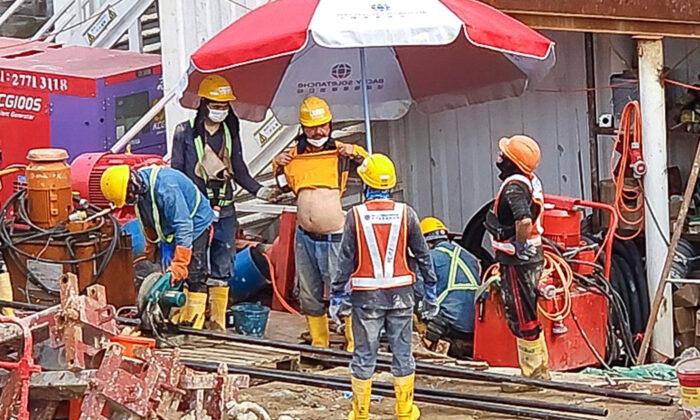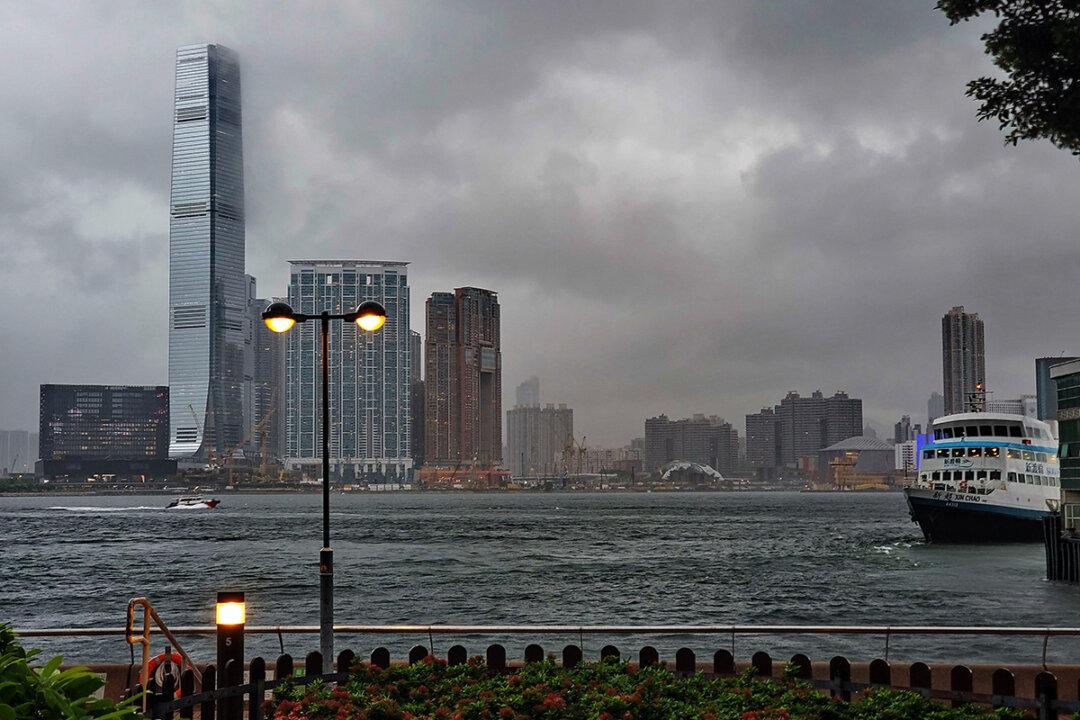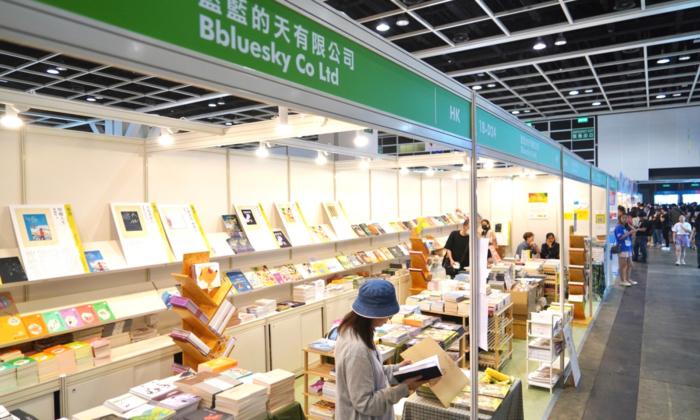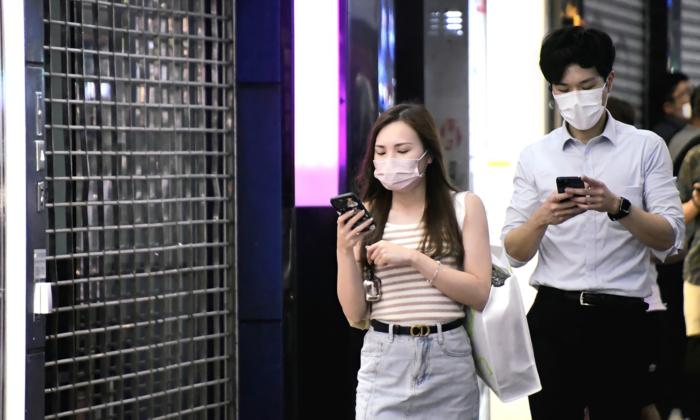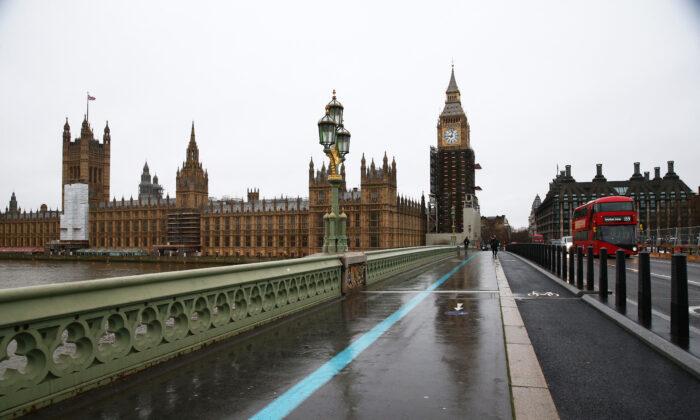Against the backdrop of an aging population and the recent massive emigration, the Hong Kong government is set to significantly increase the number of imported workers. Most of them are expected to come from mainland China through a special scheme that bypasses a long-standing supervisory mechanism on labor relations, thus causing concerns over a further dismantling of the systems established under British rule, as well as the fear of replacing local Hongkongers with mainland Chinese on a large scale.
The “Special Scheme” will commence on June 19. The plan is to recruit care workers to work for the local residential care homes for the elderly and the disabled. The scheme aims to import an additional 3,000 care workers, on top of the 4,000 who are already working in Hong Kong, that was imported previously with approval from the Labour Advisory Board (LAB), a decades-long statutory body to advise the government on labor relations, with members from the Labour Department, and representatives from employers and employees.
The New Scheme Bypasses the Supervisory Mechanism
Labor importation in Hong Kong can be dated back to the late 1980s and early 1990s when a labor shortage problem emerged as the city was undergoing a transition from an industrial economy to a service one. The British colonial government devised a “Supplementary Labour Scheme” (SLS) to set requirements for employers to fulfill if they needed to import labor. This was to ensure that job opportunities for local workers were not undermined in the face of incoming foreign labor. Under this scheme, the LAB approves applications for labor importation and supervises its operation. As the LAB comprises representatives of employers and employees, it has voices and power from the public. SLS has been in place for over three decades.
The Government Controls the New Scheme.
However, the “Special Scheme” announced in December 2022 does not involve LAB’s approval or supervision. While this new scheme carries similar requirements as those of the existing SLS for employers to observe, the applications for labor importation are vetted and approved by a “liaison group” with all members coming from the government, including heads from the Labour Department and Social Welfare Department, but without public representatives as in the SLS.
The government explained that the Special Scheme provides greater flexibility and more streamlined procedures for importing care workers, addressing the acute labor shortage in the sector. The processing time is estimated to be reduced to two months from five months currently taken in the SLS monitored by the LAB.
The government said, “With a rapidly aging population and a decrease in the overall unskilled labor force locally, it is expected that the residential care homes (RCH) sector will need at least 4 500 additional care workers in the next three years” and added that “on the premise of safeguarding the employment priority for local workers, the Special Scheme allows all RCHs for the elderly, RCHs for persons with disabilities and nursing homes to import care workers on an appropriate scale.”
The New Scheme Is Set to Import up to 12,000 Workers
Besides the RCH sector, local media has reported that the government plans to extend the “Special Scheme” to other industries, including construction, transportation, and logistics. Workers to be imported include bar benders, scaffold erectors, minibus drivers, airport ground crews, and baggage handlers, estimated to be around 10,000 workers.
Together with the care workers imported under the Special Scheme, there could be about 12,000 workers to be imported through the new mechanism.
There is further demand to extend the Special Scheme to more sectors. Jimmy Ng Wing-ka, the Legislative Councilor from the Second Industrial Functional Constituency, asked in a LegCo meeting in May whether the Special Scheme would be extended to the catering, laundry, and retail industries to address the problem of insufficient manpower.
The Secretary for Labour and Welfare, Chris Sun, did not respond directly, only mentioning that the government is reviewing the labor shortage situation in the construction and transport sectors to find relevant solutions.
Labor representatives have expressed discontent with the Special Scheme, which they see as bypassing the long-standing vetting mechanism for labor importation monitored by the LAB.
An employee representative from the LAB, Tam Kam-lin, argued that the existing SLS has successfully imported 3,000 to 5,000 workers for short-term periods to meet the needs of different industries, and this old scheme could motivate employers to improve remuneration to attract local employees as the importation is only temporary.
Thus employers cannot totally rely on labor importation as a solution, and now the government should not “start anew” another mechanism for the problem. She said the LAB would be pleased to discuss with the government to shorten the processing time for labor importation applications to speed up the labor supply.
‘Hardline’ Being Adopted by Government
Employee representatives from the LAB accused the government of setting aside the LAB repeatedly on the issue of labor importation. The government called off the LAB meeting scheduled for May 30.
An employee representative of the LAB spoke to the media anonymously, “I feel the hard line adopted by the authority. The conventional tripartite negotiation (involving the government, employers, and employees) has now turned to be a ‘(one-way) notification’ from the government.”
Manpower Shortage Due to Aging Population and Emigration
One major factor in the acute demand for imported workers in Hong Kong is its aging population.
Government figures indicate that Hong Kong’s population has been continuously aging for the past 30 years. The portion of those aged 65 and above has increased from 8.9 percent in 1991 to 20.5 percent in 2021. The growing number of old-aged people means not only a larger demand for care workers for the elderly but also a shrinking workforce. Chairman Chau Kwok-keung of the Hong Kong Taxi and Public Light Bus Association said that the government once hinted at the intention of importing 500 minibus drivers, a move Chau supports due to the serious aging of taxi and minibus drivers.
Timothy Chui, the Executive Director of the Hong Kong Tourism Association, said that insufficient manpower in the tourism sector has already impacted the industry’s strength of operation and hospitality capacity and also affects the post-COVID-19 recovery of tourism.
Trade unions from the logistics and construction fields refute the need for labor importation, worrying about the negative impact on the job opportunities of local workers. They see the labor shortage mainly due to low pay and poor working conditions. For example, the monthly wage for a minibus driver on designated routes is only around HK$13,000 to HK$15,000 (approximately US$1,668 to US$1,925), far behind the median income of the transportation industry, HK$20,000 (about US$2,566). They call upon the government to help improve remuneration, working conditions, and the environment of the concerned sectors before moving on to import workers.
Chung: Move Dismantles Established Policy Mechanisms
While employers and employees are constantly at odds when it comes to the issue of workforce importation, the government’s recent move to import labor through a new and special scheme that does away with public participation through representation from employers and employees has sparked concerns over a further political deterioration in Hong Kong.
Former Hong Kong professor on social policy and public administration Dr. Chung Kim-wah commented that the government’s move to bypass the LAB for consultation and supervision on labor importation matters but to start another mechanism is “dismantling decades-long platforms for policy formulation in Hong Kong.” Within these platforms, the public is included in the policy-making processes.
Chung said that although there was no democracy in Hong Kong under British colonial rule, the public could be part of the administration through those consultation platforms (such as the LAB) for policy making. Now such platforms are being eliminated after Hongkongers’ voices and civil society have been suppressed in recent years.
Worries Over Hongkongers Being Replaced by Mainland Chinese
Current affairs commentator Anthony Tso said that the lack of labor in many sectors in Hong Kong would prompt the authority to import labor from mainland China. He said there is now a manpower surplus in mainland China, and the authority of the Guangdong Province (in Southern China) has already demanded 300,000 youngsters to move from the urban areas to the countryside to solve the jobless problem in China’s cities.
Tso asked satirically, “If you were to choose (somewhere to go), would you prefer the mountains and countryside (in mainland China) or Hong Kong?”
He thus predicts that Hong Kong’s population structure will turn upside down, with many Hongkongers being replaced by mainland Chinese.
For the sectors lacking workers or set to have labor importation, most of their imported workforce is expected to come from mainland China.
RFI reported that The Legislative Council passed a non-binding motion on April 20 to urge the Hong Kong government to replenish the Hong Kong workforce in multiple ways, including allowing mainland China workers to cross the border to Hong Kong for work and return to their China homes after work each day.
The acute manpower shortage is also caused by massive emigration after Hong Kong’s freedom and human rights have been significantly undermined following the enactment of the Hong Kong National Security Law in 2020.
It has been reported that there has been an estimated outflow of 140,000 people from the Hong Kong workforce in the past two years amid the emigration wave.
